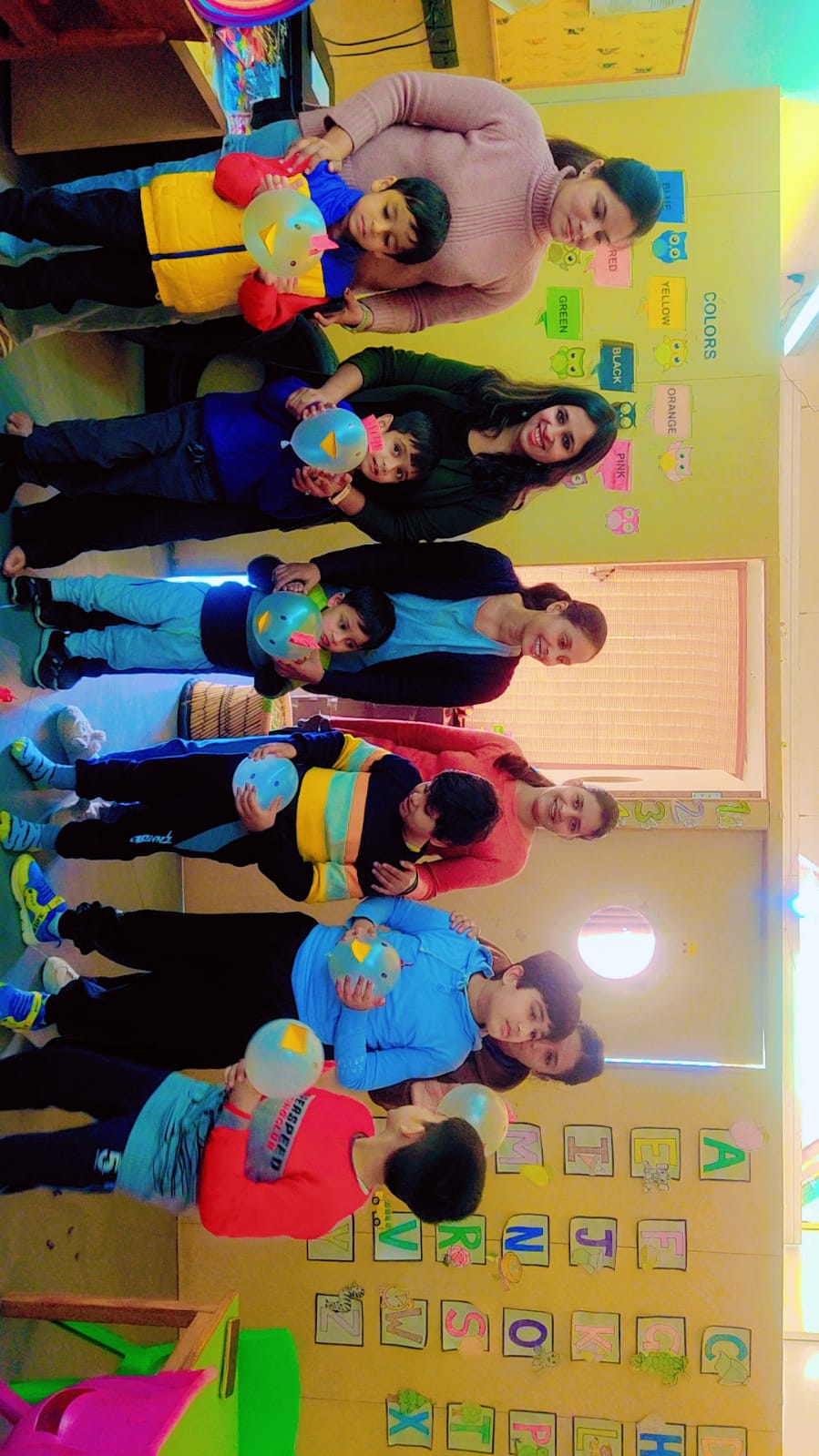Best ABA Therapy in Noida
Expert care for individuals with autism and developmental challenges
Transformative ABA Therapy
Blooming Words Therapy Center in Noida is a leading destination for Applied Behavior Analysis (ABA) therapy, offering evidence-based interventions to support individuals with autism spectrum disorders (ASD) and other developmental conditions. Our certified ABA therapists (BCBAs) design personalized programs to promote positive behaviors, enhance communication, and foster independence.
ABA therapy uses techniques such as reinforcement, shaping, and prompting to encourage desired behaviors while reducing problematic ones. By analyzing behavior patterns and implementing structured interventions, we ensure measurable progress tailored to each individual’s needs.
Why Choose Blooming Words
Our center provides a nurturing environment for behavioral and skill development.
Supportive Environment
Our center offers a welcoming and client-friendly setting to ensure comfort during therapy sessions.
Certified Therapists
Our Board-Certified Behavior Analysts (BCBAs) use evidence-based techniques to address behavioral and developmental challenges.
Personalized Interventions
We provide tailored therapy plans to meet the unique needs of each client, ensuring effective progress.
Flexible Access
Our center offers flexible scheduling and options for in-clinic, home-based, or school-based therapy depending on the client’s needs.
Benefits of Our ABA Therapy Programs
- Improved communication and social skills
- Reduced problematic behaviors
- Enhanced independence and life skills
- Support for autism and developmental disorders
- Measurable progress through data-driven interventions
Our Approach to ABA Therapy
Blooming Words Therapy Center in Noida specializes in ABA therapy, offering structured interventions to address behavioral, communication, and social challenges. Our approach is data-driven, using techniques like positive reinforcement, task analysis, and discrete trial training to promote skill development and reduce problematic behaviors.
Our sessions, conducted one-on-one or in small groups, are tailored to the individual’s needs and may take place in our center, at home, or in school settings. We work closely with families, providing training and strategies to reinforce progress in everyday environments.
Our Therapeutic Process
Comprehensive Assessment
We evaluate the client’s strengths, challenges, and goals through observations, interviews, and standardized tests to create a baseline for therapy.
Individualized Treatment Plan
We create a tailored program with specific, measurable goals to address the client’s unique behavioral and developmental needs.
Interactive Therapy Sessions
Our therapists use evidence-based techniques like reinforcement and prompting to promote skill development in a supportive environment.
Our goal is to provide the best ABA therapy in Noida, helping clients achieve independence and thrive in their daily lives. Parent and caregiver involvement is encouraged to ensure consistent progress.
Conditions Addressed
- Autism Spectrum Disorder (ASD): Improving communication, social skills, and behavior management.
- Developmental Delays: Supporting skill development in cognitive, motor, and adaptive areas.
- Behavioral Challenges: Reducing aggression, self-injury, or tantrums.
ABA Therapy Settings
Our therapy programs are offered in multiple settings, including our state-of-the-art center in Noida, home-based sessions for familiar environments, and school-based interventions to support academic integration. We also provide parent training workshops to enhance family involvement.
Why Noida?
Noida’s modern infrastructure and accessibility make it an ideal location for specialized therapy. Blooming Words stands out with its certified therapists, advanced facilities, and client-centered approach, ensuring effective and compassionate care.
Start Your ABA Therapy Journey
Contact Blooming Words today to schedule a consultation. Our team will assess your needs and create a personalized ABA therapy plan to support growth and development.
Book AppointmentFrequently Asked Questions About ABA Therapy
What is ABA therapy?
ABA therapy is an evidence-based approach to improving behavior and teaching essential skills, widely used for individuals with autism spectrum disorders, focusing on reinforcing positive behaviors.
Who can benefit from ABA therapy?
ABA therapy is beneficial for individuals with autism spectrum disorders, developmental delays, or behavioral challenges, suitable for both children and adults.
How do I find the best ABA therapy in Noida?
Look for centers with certified ABA therapists (BCBAs), personalized treatment plans, modern facilities, and strong parent involvement. Visiting the center can help you make an informed decision.
How long does ABA therapy take to show results?
The timeline varies depending on individual needs and goals. Some may show progress within weeks, while others may require months of consistent therapy.
Why choose Blooming Words for ABA therapy in Noida?
Blooming Words offers personalized, evidence-based care with certified therapists, modern facilities, and a supportive environment for effective outcomes.
Contact Us Today
Ready to start your ABA Therapy journey? Get in touch!



